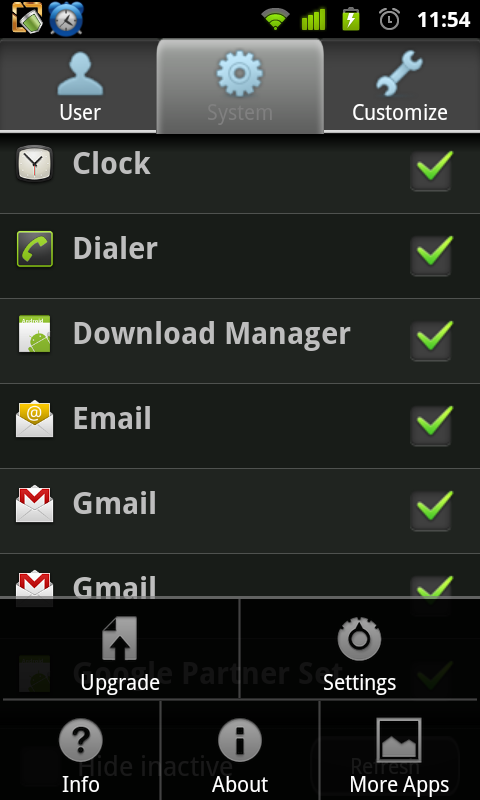

- Android startup manager root how to#
- Android startup manager root for android#
- Android startup manager root android#
So it’s a good idea to keep checking this section to ensure that the app hasn’t automatically reappeared. Of course, as Stephen King once wisely wrote, sometimes they come back. If you’ve upgraded to Marshmallow (Android 6.0.1) then you’ll need to enable the developer mode before you can access the information.
Android startup manager root android#
Finding this out is a little different depending on the version of Android you’re using. If you’re noticing performance issues with your device then it’s a good idea to see what apps are running.
Android startup manager root how to#
How to stop Android apps starting automatically: If you’re running Marshmallow Nevertheless we’ll investigate the options open to you below. The sad truth is that if an app is determined to run and auto launch it can be quite a challenge to bring it to heel. Android protects itself quite well, so even if you do try to stop something essential from running your device will overrule you if it’s results would end in catastrophe. The exceptions are the various Google Play apps (Books, Movies & TV, Games, Newsstand, and Music) all of which can be stopped without causing any disruption to your system. For these reasons it can be counterproductive to close down apps via something like a dedicated Task Killer app, as Android prefers to maintain its own environment.Ī good rule of thumb is to pretty much leave anything by Google alone. If performance starts to dip the system will begin closing down the least used ones in order to claim back speed. For the most part this isn’t an issue as Android is actually designed to fill up its RAM with apps so that users have a fast experience. See also:īest upcoming phones in 2016/2017 How to stop Android apps starting automatically: Why stop them?Įverything that runs on your device has some kind of impact on the resources available for memory, CPU, and battery power.

In this feature we’ll look at how you can stop these from launching and what to do if they just won’t stay closed. There can be a number of factors for this, but one that we are often asked about is unwanted apps running in the background. In "Advanced Mode" (requires root) it "silences" their listeners, so they never receive the event broadcast and thus do not automatically start.Android users can often find that over time their devices slow down from the lighting pace that they usually arrive with. But many apps do so when being killed.ĪutoRun Manager, which I've mentioned before, supports both modi: If used in "Basic Mode" (which does not require root), it kills configured apps on start. They wouldn't do so if they were really disabled.
Android startup manager root for android#
Prove on that you again can find in the app's description: Note: For android 2.2 and higher OS non-rooted devices, some processes will restart themselves right after being disabled. So it most likely just "kills" the apps when they start. Its permissions do not include SUPERUSER (aka root), so it cannot modify receivers/listeners. As you can see in its app description, and like I've written above, this app just cares for the boot_completed event: it does disable/enable startup items from system boot. Now your question is specifically about Startup Manager. Best one most likely is AutoRun Manager, my favorite I used for quite a while. Then there are those managers supporting both modi. They also in most cases stick to the boot_completed event, and don't care about others. Thus "startup managers" working without "root powers" basically do nothing other than task mangers: killing the app once it started on a given event. However, doing that requires "root powers". What's the difference between a service and a broadcast receiver?).


If you are interested in details, see e.g. As dotVezz answer assumes, there are some just de-activating the corresponding "listeners" (apps can be notified on events, and thus get started when they appear – the most famous event being boot_completed but there are many more, like network changed, SDCard mounted, battery low. It all very much depends on the "startup manager" used, and whether your device is rooted.


 0 kommentar(er)
0 kommentar(er)
